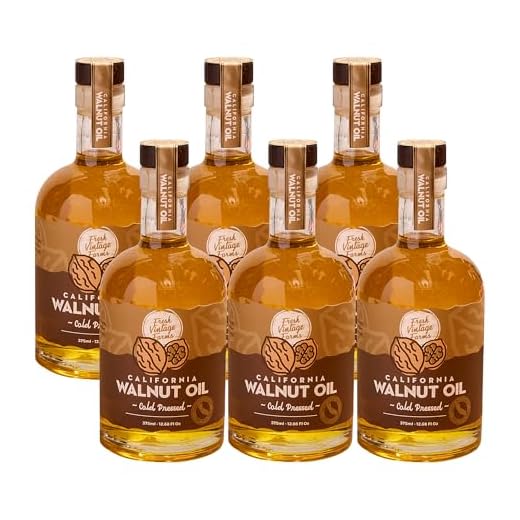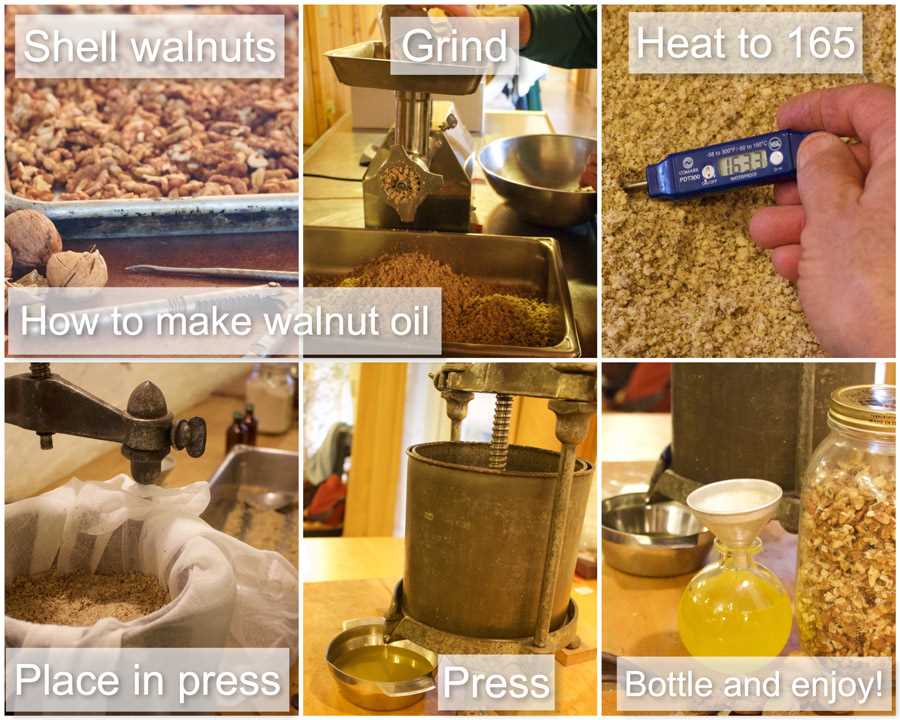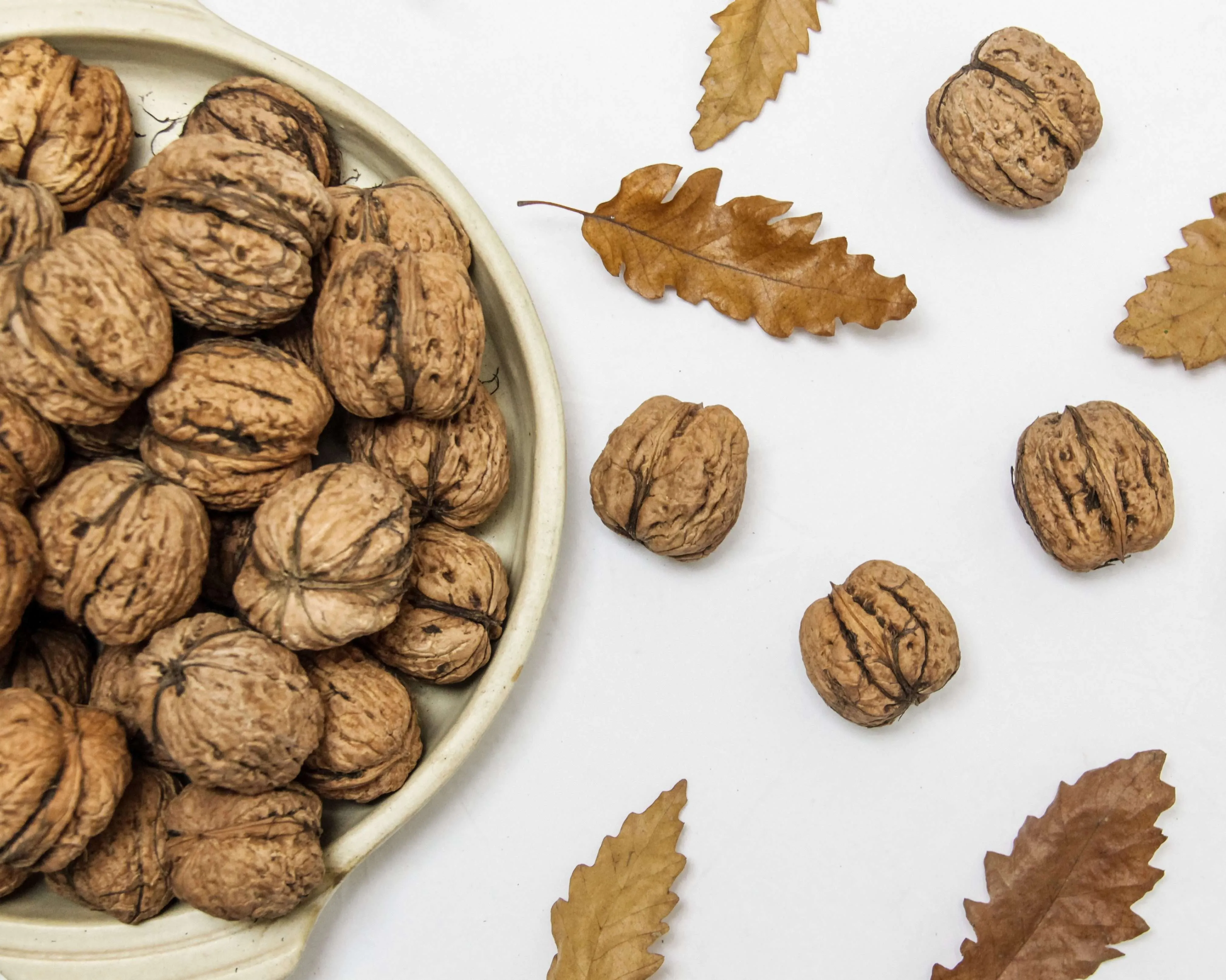




Walnut oil is a versatile and flavorful oil that can be used in a variety of dishes. It is extracted from the nuts of a walnut tree and has a rich, nutty taste that adds a wonderful depth of flavor to both sweet and savory dishes.
Although walnut oil is commonly used as a finishing oil to drizzle over salads or roasted vegetables, it can also be used in cooking. Its high smoke point makes it suitable for sautéing, frying, and even baking. However, it is important to note that walnut oil is delicate and can become bitter if exposed to high heat for too long.
In addition to its flavor and cooking versatility, walnut oil is also known for its health benefits. It is a good source of omega-3 fatty acids, which can help to reduce inflammation in the body and support heart health. Walnut oil is also rich in antioxidants and vitamin E, which can have positive effects on skin health and aging.
When using walnut oil in cooking, it is best to use it as a finishing oil or as an ingredient in dressings, marinades, or sauces. Its unique flavor can enhance the taste of a dish and bring out the natural flavors of other ingredients. Just remember to store it in a cool, dark place to preserve its freshness and flavor.
Benefits of Cooking with Walnut Oil
Walnut oil is a versatile and nutritious oil that can be used in cooking for its many health benefits. This oil is extracted from walnuts and has a rich, nutty flavor that adds depth to a variety of dishes.
1. Heart-Healthy
Walnut oil is rich in omega-3 fatty acids, which have been shown to promote heart health by reducing inflammation and improving cholesterol levels. Including walnut oil in your cooking can help support a healthy cardiovascular system.
2. Antioxidant-Rich
Walnut oil contains antioxidants that help protect against oxidative stress and prevent damage to cells. These antioxidants can help boost your immune system and reduce the risk of chronic diseases.
Additionally, walnut oil is a good source of vitamin E, which is a powerful antioxidant that can help protect against the damage caused by free radicals.
3. Nutrient-Dense
Walnut oil is packed with essential nutrients, including vitamins, minerals, and phytochemicals. It is a good source of omega-6 fatty acids, which are important for brain function and energy production.
Furthermore, walnut oil is a great source of polyphenols, which are plant compounds that have been associated with numerous health benefits, such as reducing inflammation and improving digestion.
In conclusion, cooking with walnut oil can be a great way to incorporate a healthy and delicious ingredient into your meals. Its numerous health benefits make it a worthy addition to any kitchen pantry. So, why not try cooking with walnut oil and enjoy its unique flavor and nutritional advantages?
Enhances Flavor and Aroma
Walnut oil is known for its rich and intense flavor, making it a popular choice among chefs and home cooks. Its distinct nutty taste adds depth to various dishes, including salads, pasta, and desserts. When used in moderation, walnut oil can elevate the overall taste and aroma of your culinary creations.
Walnut oil also pairs well with a wide range of ingredients, allowing you to experiment and create unique flavor combinations. Whether you’re sautéing vegetables, marinating meats, or drizzling it over roasted potatoes, walnut oil can enhance the flavors and bring out the best in your ingredients.
Additionally, the aroma of walnut oil can be quite appealing. Its nutty scent can fill your kitchen and entice your senses while you cook. The aroma is reminiscent of toasted walnuts, and it adds an extra layer of sensory pleasure to your culinary experience.
Overall, cooking with walnut oil can enhance the flavor and aroma of your dishes, transforming them into a culinary masterpiece. Its unique nutty taste and appealing aroma make it a versatile ingredient that can elevate a wide range of recipes and tantalize your taste buds.
Rich in Nutrients and Antioxidants
Walnut oil is not only delicious but also packed with a variety of nutrients and antioxidants that can benefit your health. It is a good source of omega-3 fatty acids, which are essential for brain health and may help reduce inflammation in the body.
1. Omega-3 Fatty Acids
Walnut oil is high in omega-3 fatty acids, particularly alpha-linolenic acid (ALA). These essential fatty acids are not produced by the body, so it is important to get them from dietary sources. Omega-3 fatty acids have been shown to support heart health, improve brain function, and reduce the risk of chronic diseases.
2. Antioxidants

Walnut oil contains antioxidants that help protect your cells from damage caused by free radicals. Free radicals are unstable molecules that can contribute to the development of chronic diseases and accelerate the aging process. Antioxidants neutralize these harmful molecules and prevent oxidative stress.
Some of the antioxidants found in walnut oil include vitamin E, phenolic compounds, and polyphenols. These antioxidants have been linked to various health benefits, including a reduced risk of heart disease, improved cognitive function, and protection against certain types of cancer.
In addition to omega-3 fatty acids and antioxidants, walnut oil is also a good source of vitamin K, which is important for blood clotting and bone health, as well as other minerals such as magnesium and copper.
Overall, incorporating walnut oil into your cooking can be a nutritious and flavorful addition to your meals. Just remember to use it in moderation, as it is high in calories and fats. Enjoy the health benefits and unique flavor that walnut oil can bring to your dishes!
Heart-Healthy Option
Walnut oil is considered a heart-healthy option for cooking due to its high content of omega-3 fatty acids. Omega-3 fatty acids are known to reduce inflammation and improve heart health.
Research has shown that consuming omega-3 fatty acids can help lower the risk of heart disease, lower blood pressure, and improve overall cardiovascular health. Including walnut oil in your cooking can be an easy way to incorporate these beneficial fatty acids into your diet.
Additionally, walnut oil is rich in antioxidants, which can help reduce oxidative stress and protect the heart from damage caused by free radicals. These antioxidants can also help lower cholesterol levels and improve blood vessel function.
When using walnut oil for cooking, it is important to note that it has a low smoke point. This means that it is best used for low to medium heat cooking methods such as sautéing or dressing salads. High heat can cause the oil to break down and lose its beneficial properties.
To ensure the quality and freshness of walnut oil, it is recommended to store it in a cool, dark place. Exposure to heat, light, and air can cause the oil to become rancid. Always check the expiration date and smell the oil before using it in your cooking.
| Benefits of Walnut Oil: |
|---|
| High in omega-3 fatty acids |
| Reduces inflammation |
| Improves heart health |
| Rich in antioxidants |
| May lower cholesterol levels |
Suitable for Different Cooking Methods

Walnut oil is a versatile cooking oil that can be used in various cooking methods. Whether you prefer baking, frying, or sautéing, walnut oil can add a unique and nutty flavor to your dishes.
When it comes to baking, walnut oil can be a great substitute for other oils or butter. Its rich and robust flavor can enhance the taste of your cakes, cookies, and breads. Just keep in mind that walnut oil has a low smoke point, so it’s best to use it in recipes that require moderate baking temperatures.
If you enjoy frying foods, walnut oil can be a healthy choice. Its high levels of omega-3 fatty acids and antioxidants make it a beneficial option for deep frying or pan-frying. The nutty flavor of walnut oil can complement fried vegetables, chicken, or fish, adding a delicious twist to your favorite fried dishes.
Sautéing is another cooking method where walnut oil can shine. Its delicate flavor and low smoke point make it an ideal choice for cooking vegetables, stir-fries, or even pasta dishes. You can drizzle walnut oil over your sautéed dish just before serving to enjoy its unique taste and aroma.
Important note: Even though walnut oil is suitable for different cooking methods, it’s important to use it in moderation. Due to its high content of polyunsaturated fats, walnut oil might become bitter if overheated or exposed to prolonged heat. Therefore, it’s recommended to use walnut oil as a finishing touch or in dishes that require lower cooking temperatures.
Adds Moisture to Baked Goods
Walnut oil can be a great addition to your baked goods. When used in recipes, it helps to add moisture to the final product, resulting in a moist and tender texture.
Because walnut oil has a slightly nutty and rich flavor, it can also enhance the taste of your baked goods. It pairs well with ingredients like chocolate, vanilla, and cinnamon, adding a delicious depth of flavor.
When baking with walnut oil, it is important to note that it has a relatively low smoke point compared to other oils. This means that it is not suitable for high-temperature cooking or frying. However, in baking, where temperatures are typically lower, walnut oil can be used with great success.
For best results, consider replacing a portion of the butter or oil called for in a recipe with walnut oil. This can help to achieve a desirable moisture and flavor profile in your baked goods.
Pro tip: If you’re using walnut oil in a recipe that calls for melted butter, you can try substituting an equal amount of melted walnut oil. This will help to maintain a similar texture and moisture level in your baked goods.
Overall, walnut oil can be a wonderful addition to your baking repertoire. It adds moisture, enhances flavor, and can help to create delicious and tender baked goods.
Questions and answers
Can you cook with walnut oil?
Yes, walnut oil is suitable for cooking. It has a rich nutty flavor that adds depth to dishes.
What can I use walnut oil for?
Walnut oil can be used for drizzling over salads, vegetables, or pasta for added flavor. It can also be used as a finishing oil for soups or stir-fries.
Is walnut oil healthy to cook with?
Yes, walnut oil is considered healthy as it is a good source of omega-3 fatty acids and antioxidants. However, it should be used in moderation due to its high calorie content.
Can I use walnut oil for frying?
Walnut oil has a low smoke point, so it is not recommended for deep frying. However, it can be used for light sautéing or stir-frying at medium heat.
What dishes pair well with walnut oil?
Walnut oil pairs well with dishes such as roasted vegetables, grilled meats, and desserts like fruit salads or ice cream. It can also be used in baking for a nutty flavor.






